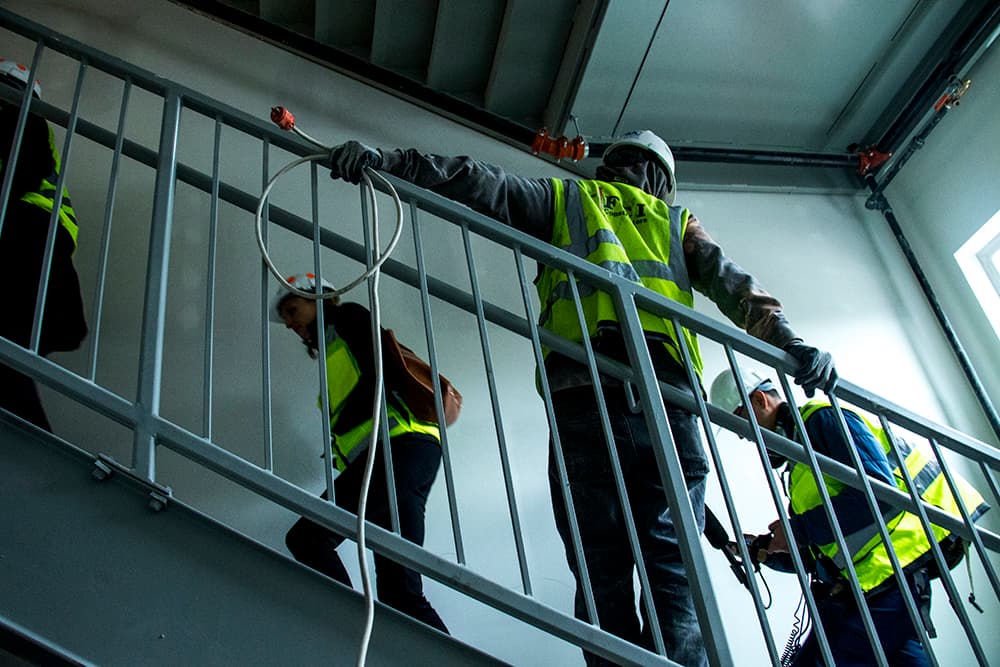
Denver's elected leaders on Tuesday approved the course for the city's next five years of spending on affordable housing with an 11-1 decision. Even as they voted, though, council members called for the city to find more new money for housing.
"If the city of Denver does not double the (housing) fund this year, find the funds this year, this year, we will be in trouble," said Council President Albus Brooks.
"Not only am I predicting we will come together with the mayor’s office to find those funds this year, I'm saying, 'We need to.'"
What it says:
The city's new housing fund, approved in 2016, was designed to generate about $15 million per year over a decade.
The newly approved five-year strategy calls for the creation or preservation of 3,000 units of affordable housing from 2018 to 2023. For comparison, Denver needs "at least an additional 15,500 units" for its lowest-income residents, the plan suggests.
The new housing plan does not actually call for a greater volume of new affordable housing. Its numerical goal is the same as Denver's last five-year housing plan.
However, this plan has a heavier focus on the lowest-income housing, which is more expensive to provide.
"This is really the first housing plan the city’s had that addresses housing needs across the entire spectrum," said Laura Brudzynski of the city's Office of Economic Development.
The plan suggests spending up to half the housing money on people who make less than 30 percent of the area median income. (That's about $23,000 for a family of three.)
It also says Denver should fund programs to help people find and keep housing, which are expected to cover 30,000 households.
Some of the plan's ideas include:
- Property tax relief for low-income homeowners
- Better protections for renters
- More consistent requirements for new affordable housing when areas are redeveloping quickly
- Better using city land for housing
- Helping people build alternative dwelling units. This was a big topic of discussion on Tuesday.
Reactions:
Council members and advocates previously criticized the plan for a perceived lack of detail -- and people on Tuesday had lots of suggestions, but it enjoyed broad support.
Tim Craft, a developer associated with the Home Builders Association of Denver, warned that the plan may underestimate the need for housing.
"As anti-growth sentiment develops in some of the suburban areas and neighboring municipalities, we do anticipate additional demand for affordable housing in Denver proper," he said.
Advocates also urged the council to address "permanent affordability." Many affordable housing units are allowed to "expire" and return to market rate in as little as 20 years for a typical development -- something Brooks said they could examine later.
Councilwoman At-large Debbie Ortega said she wanted the city to look at controlling rents. "What are we doing to bring that price point down?" she asked.
The state government forbids cities from putting legal limits on rent, but Councilman Paul López said that the city should lobby to change that.
"When we’re silent, there’s no action," he said.
Who voted no?
Councilman Kevin Flynn voted against the plan, saying he was concerned that it didn't properly address housing needs in southwest Denver.
He was especially concerned about a map that labeled Bear Valley and DIA residents as "vulnerable to displacement."
He described Bear Valley as "upper middle-class," and said other parts of his district seemed more vulnerable. Flynn also questioned a map that said parts of his suburban district have "hip" and "chic" businesses. (More like "hip replacements," he joked.)
"I agree with the goals and recommendations (of the plan), but I worry about how the data shows the resources should be allocated," he said in an interview afterward.
All other council members voted for the plan, except Councilwoman At-large Robin Kniech, who was absent.
"It’s an aspirational plan that commits to doing the legwork needed to fine-tune the action," said Councilman Paul Kashmann. " ... It really touches all the bases that are important."

A time of change:
The discussion of the plan comes just as the city's housing effort goes through some major changes.
Erik Soliván, a housing adviser to the mayor, announced last week that he would soon resign from the city government. Meanwhile, the city is hiring a "chief housing officer."
It's unclear why Soliván is leaving. He was a principal author of the plan.










